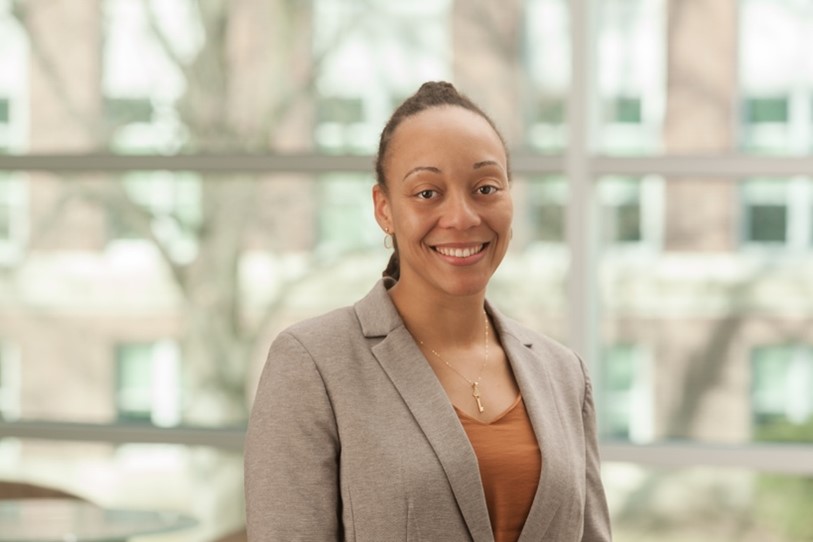For Black History Month, UNMC celebrates the achievements and contributions of Blacks and African Americans and encourages the community to reflect on our nation’s history. A series of activities are planned throughout February. UNMC also will highlight the perspectives of Black health professionals at the medical center.
Today, UNMC Today recognizes Natalie Crump, MBBS, UNMC Department of Hospital Medicine.
What has your journey been like as a Black health professional?
Growing up on the Caribbean island of Barbados, I had a unique experience compared with some of my Black professional colleagues in this country. I was not a minority given the population demographics of Barbados, where Blacks are the majority. This doesn’t mean I have not experienced discrimination, but it meant that I had many role models growing up with whom I identified. Both of my parents are physicians, and most of my medical classmates were Black. I was surprised at the lack of African American representation in health care relative to their proportion of the U.S. population when I emigrated in 2009. I have had my medical competency and proficiency questioned by patients, students and supervisors because of my race, gender and Barbadian accent. Despite this being a relatively small fraction of my experience as a Black female physician, which has overall been a fulfilling one, it has fueled my passion to support other persons of color to be successful in any profession they pursue.
Why is it important that we celebrate Black history in health care?
It is an important step to achieving health equity through humble recognition of the historical trauma that systematically places individuals of color at a disadvantage and how this impacts their health care today. Celebrating Black history in health care is part of our mission as a health care institution by acknowledging the role our professionals have in achieving Martin Luther King’s dream to eliminate health disparities.
What can we do to support Black individuals pursuing or interested in a career in health care or public health?
We can motivate Black individuals to pursue a career within health care or public health by creating opportunities for Black youth to interact with black health care professionals who can mentor them starting from elementary school through community partnership with local schools and nonprofit agencies that provide after school activities, career development workshops and professional health care observerships for underrepresented minorities. As Black health care professionals, we can build trust and support Blacks by serving as role models in every aspect of our personal and professional lives, advocating for educational and health equity through public health policies and challenging the status quo within our professional communities. I was blessed with the rewarding experience of mentoring a Black nurse who was intrigued to meet a Black female physician at UNMC in 2019. She shadowed me a few times in the emergency department, and I supported her medical school application, so it was personally gratifying when she was accepted into a medical school in Des Moines. This mentorship has fostered a wholesome friendship and provided mutual support throughout our individual career paths.

Thank you Dr. Crump for sharing your experiences in Barbados and how that landscape among African Americans in the States is totally different. Thank you for all that you do, you’re the best and one of my favorites of ALL time.
Dr. Crump you are an excellent role model and a thoughtful, caring physician. Great things are in your future!
Dr. Crump,
Thank you for being such an inspiration to so many people in our community. Your perspective offers a genuine authenticity that allows your patients to connect with you! Best wishes!
Inspiring. Very positive proposals to achieve equity for medical care. Wishing you every success in your already successful career as a black female physician.
Well done Dr Crump, your interview is insightful and thoughtful. I think you will now be one of the role models for other young Caribbean med students, just like the previous role models that inspired you. It’s wonderful to make a difference. I wish you the very best.
Thank you, Dr Crump, for sharing your experience as a Black female physician. You are a wonderful role model. I especially appreciate the effort you put into mentoring and the guidance you provide for all of us as we work towards equity and inclusivity in healthcare.
Seeing ourselves represented makes a huge difference! When I was younger, I was interested in becoming a doctor. I had nobody in my family to turn to for guidance on this and never visited a doctor that looked like me. It warms my heart that Dr. Crump took time to mentor and support another woman’s journey to practice medicine. We need more of this.